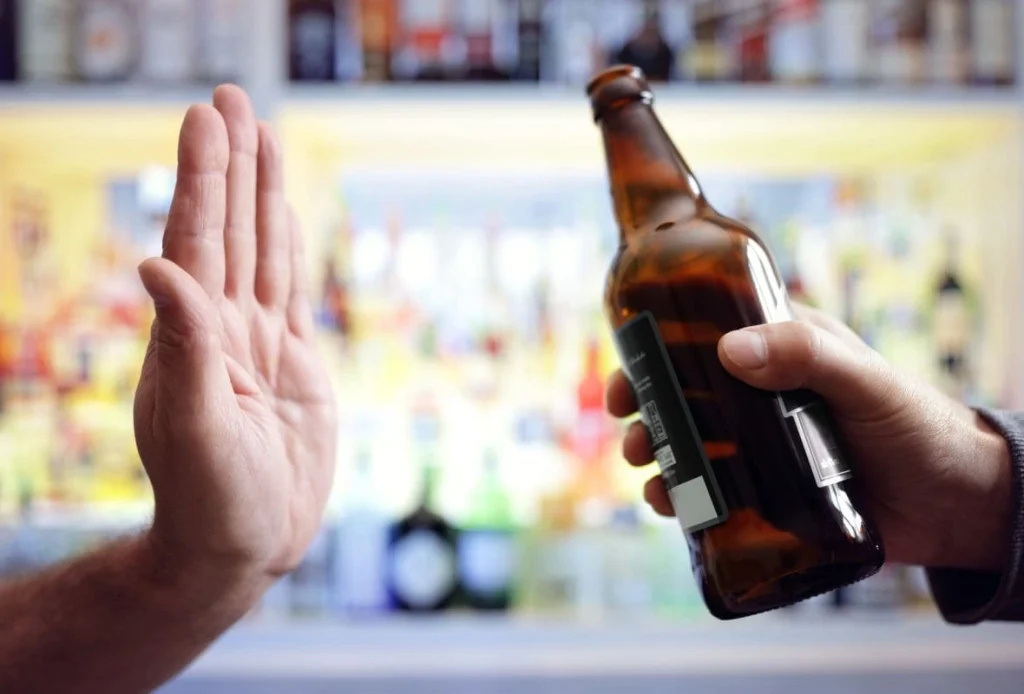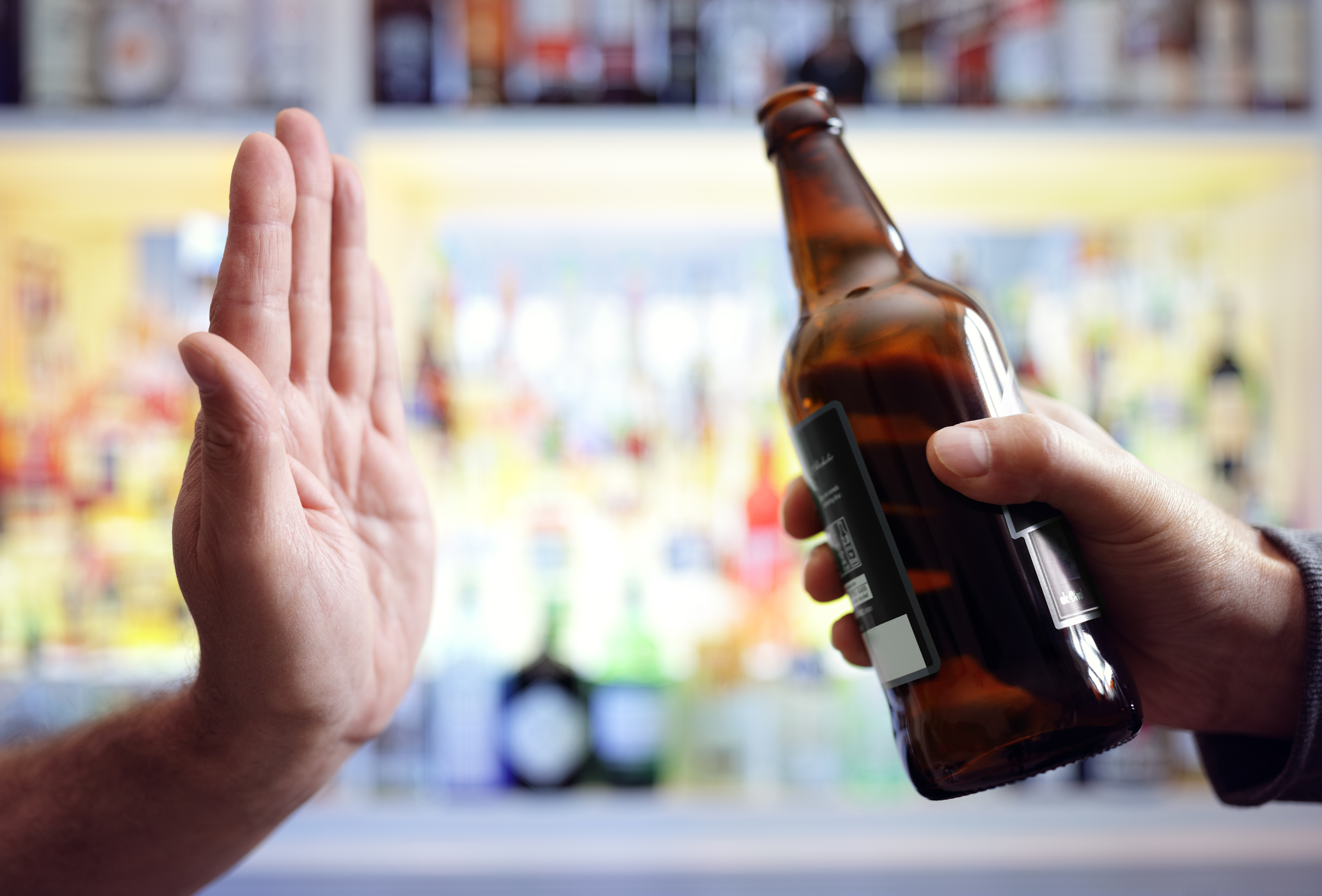What’s included
- Introduction
- What happens when you quit drinking – timeline
- Can the health impacts of heavy drinking be reversed?
- How long does it take to feel better after quitting alcohol?
- Further information
When you give up alcohol, having been a dependent drinker, you’ll move through various stages of recovery.
There are always going to be individual variations to these but broadly speaking we can make some assumptions about what we expect to happen and when.
Anyone who has been a heavy or dependent drinker should seek medical support and advice before they quit drinking due to the potentially dangerous – even fatal – impacts of going cold turkey without the right monitoring. However, no one should be scared off giving up drinking due to this – the right help for you is out there.

What happens when you quit drinking – Quitting alcohol timeline
This timeline is a broad estimate of what will happen and when after a dependent drinker has their last alcoholic drink.
Everyone is likely to experience slight variations on this.
| Period since last drink | Symptoms/outcomes you may see |
| Two to 12 hours | Onset of withdrawal symptoms which may include hand tremors, retching, excessive sweating, restlessness and anxiety. |
| 12 to 24 hours | Withdrawal symptoms continue. Alcohol cravings, reduced energy and feeling low or depressed are common. Sleep is likely to be disturbed. |
| 12 to 72 hours | This is the danger period for the most severe withdrawal symptoms such as dangerously raised heart rate, increased blood pressure and seizures. |
| 48 to 72 hours | For most people, this is the point at which withdrawal symptoms begin to recede or become more manageable. |
| 3 to 7 days | Withdrawal symptoms will, on the whole, stop for most people. In a few cases, the symptoms will worsen and can develop into the medical emergency delirium tremens (DTs), involving disorientation, confusion and profuse sweating. This is why heavy drinkers should only stop drinking with medical supervision. |
| 1 week | Sleep patterns are likely to improve, though it can take up to a month or longer for some people. |
| 1 to 2 weeks | Between the one and two week mark is the point at which a clinical detox period usually comes to a close. |
| 2 weeks | You may start to notice weight loss due to removing alcohol calories. Those whose livers have not been badly damaged by drinking but have become ‘fatty’ can start showing signs of recovery. |
| 3 to 4 weeks | Blood pressure may reduce to healthier levels if drinking was causing an increase. |
| 1 month | Your skin may start to look better. |
| 3 months | More energy and a general sense of better health. |
| 1 year | A few people will find some degree of the sense of low energy, anxiety, sleeping troubles and/or alcohol cravings present at the beginning of withdrawal continues for much longer than is usual. At the 12-month mark, almost everyone will leave these behind and begin to enjoy all the benefits of being drink-free. |
Can the health impacts of heavy drinking be reversed?
Whilst drinking alcohol has been shown to increase the risk of developing many cancers, ending alcohol consumption will reduce the risk compared to if you continue drinking.
Research suggests any amount of alcohol consumption increases the risks of cancer of the mouth, voice box, upper throat, oesophagus and breast.
Drinking in the region of two or more drinks every day increases the risk of colorectal cancer. Whilst drinking three or more drinks per day increases the risk of stomach and liver cancer.
Alcohol Change UK says, women who drink between 14 and 35 units of alcohol per week, have a 15% chance of developing breast cancer, compared to an 11% chance for those who don’t drink. It says men who drink up to 14 units of alcohol per week have a less than 1% chance of developing colorectal cancer, but an 11% chance if they drink more than 35 units per week.
Male fertility can be impacted by heavy drinking, but it is felt those impacts can be quickly reversed when drinking stops.
Sexual function problems are very widespread among heavy drinkers, including premature ejaculation and erectile dysfunction. In women, vaginal dryness can be an issue. These issues are reversible when drinking stops.

How long does it take to feel better after quitting alcohol?
Whilst physical withdrawal symptoms are likely to be at their worst during the first couple of days and are usually very much improved in a couple of weeks, emotional issues may remain for longer.
There are many other stages of recovery after drinking and the timeline for those will be very dependent on the individual.
The Jellinek Curve, a tool that outlines signs and symptoms of alcoholism and indicators of addiction and recovery, details some of the other formative milestones people may experience as they get well.
These milestones are hugely important and knowing that they will come is hugely reassuring to people in recovery.
In the early stages, these milestones are things like reaching the point of honestly desiring help, beginning not to obsess about alcohol and improved thought processes. Later they’ll include moving towards feeling hope, returning self-esteem and may include creating new circles of stable friendships or reviving and rebuilding relationships.
Recovery is not one smooth upward curve. Almost everyone will have moments of feeling worse before they feel better, experiencing a sense of being stuck or of relapsing either emotionally or physically, but everyone has the capacity to move forward. With the right support, you can feel better, you can leave alcohol and addiction behind and you can create a new, healthier, happier future.
Further information
For further information about drinking problems and alcoholism please visit our resources:








